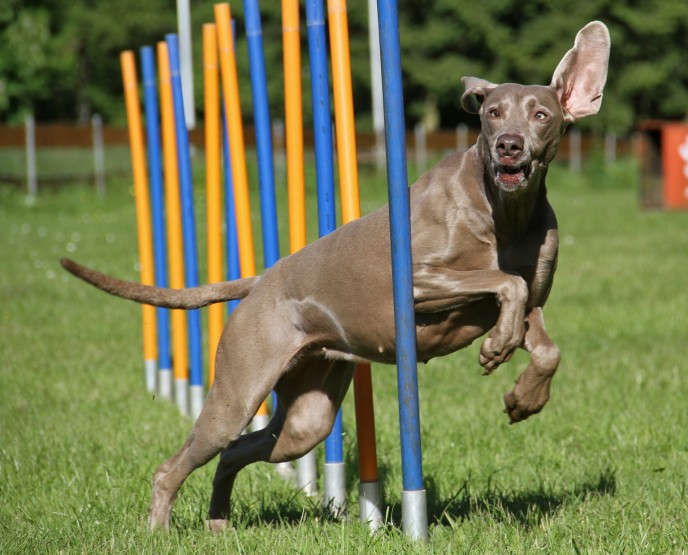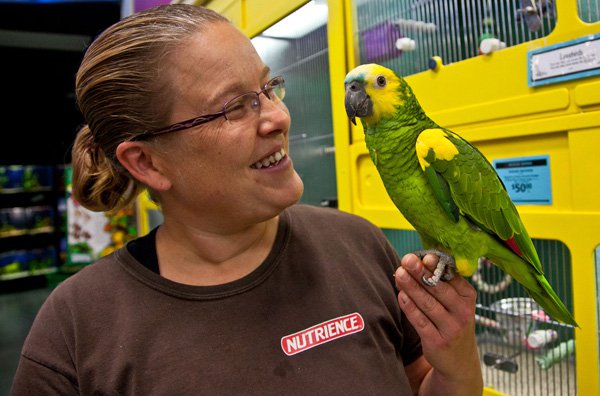
If a labrador intended to become a household pet needs regular labrador retriever training, for sure the one chosen to become a working dog needs more. Dogs that are expected to do jobs such as tracking and detection or assisting persons with disabilities need to undergo specialized and more rigorous training in addition to mastering the basic obedience commands such as sit, stay and down as well as tricks like crawl, shake, wave, roll over and shake hands.
Labrador retrievers are widely used as working dogs because of their intelligence and good temperament. But despite that fact, lab owners should know that not all of them are fit for training intended for potential working dogs much more become one. Dogs that will be included in the training need to meet certain criteria such as age bracket and must undergo blood work, X-ray and other physical assessment to determine their physical and mental condition early on.
Whether you would want your dog to assist those with disabilities or to help law enforcers through tracking and detection, socialization should be done properly. Getting them used to the presence of various people, other animals, places and situations as early as possible is a very big factor for successful labrador retriever training. It also helps in determining what specific line of work best suits your pet.
If observation shows that the dog is better off as guide dog or disabled-assistant, the next step is focused on training the pet to avoid distractions and improving the memory and concentration for longer periods of time. Guide dogs are expected to;
- protect the handler
- guide him/her when crossing the street
- avoid road danger such as holes and overhanging obstacles
- guide the handler to the elevator
- lie quietly when the handler is sitting down
hence it helps if your pooch is well versed to such scenarios. Since it is very important for guide dogs to remain calm when doing the tasks expected from them, it is therefore important to train them to ignore distractions and focus on the task ahead no matter what happens. If a labrador cannot continue with guide dog training for some reasons, more often, he ends up as household pet and could be trained to become therapy dog instead. Therapy dogs main task is to provide affection and comfort to people who are sick in hospitals, retirement homes, disaster areas as well as schools.
Nowadays, many labrador retrievers have become part of law enforcement agencies. With proper labrador retriever training in addition to the dog's natural ability and characteristics, surely he can do various tasks to aid police and other law-enforcement personnel. Roles of police dogs include;
- search and rescue dog (SAR)
- detection dog
- cadaver dog
Knowing tips about training is not enough to ensure success. As owner, it is equally important to have a great deal of patience in order to withstand frustrations and many hours of training.
Kate Truman is a dog enthusiast who loves to write articles about labrador retriever training. Find out more tips by visiting her site specially dedicated to labrador retriever training.
 The 5 Best Cat Breeds For An Indoor-only Home
The 5 Best Cat Br
The 5 Best Cat Breeds For An Indoor-only Home
The 5 Best Cat Br
 A Short Explanation Of Dog Agility Training Equipment
A Short Explanati
A Short Explanation Of Dog Agility Training Equipment
A Short Explanati
 What Nutrients Do Cats Need, And What Do They Do?
What Nutrients Do
What Nutrients Do Cats Need, And What Do They Do?
What Nutrients Do
 Keeping Chickens On A Budget
Keeping Chickens
Keeping Chickens On A Budget
Keeping Chickens
 Complete sinking water food spirulina wafers best for aquarium fishes
Complete sinking water food spirulina wafers best for aqua
Complete sinking water food spirulina wafers best for aquarium fishes
Complete sinking water food spirulina wafers best for aqua
Copyright © 2005-2016 Pet Information All Rights Reserved
Contact us: www162date@outlook.com